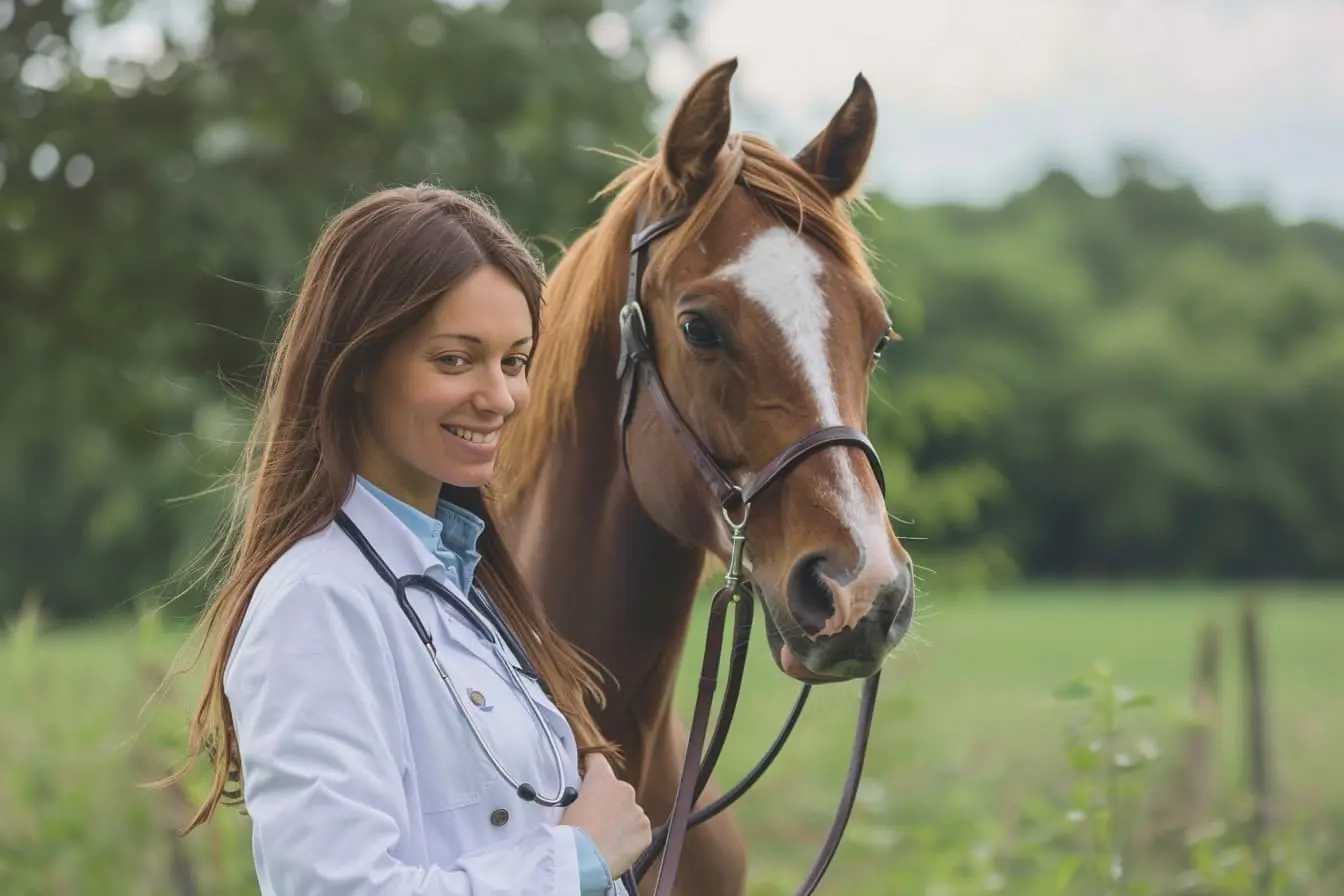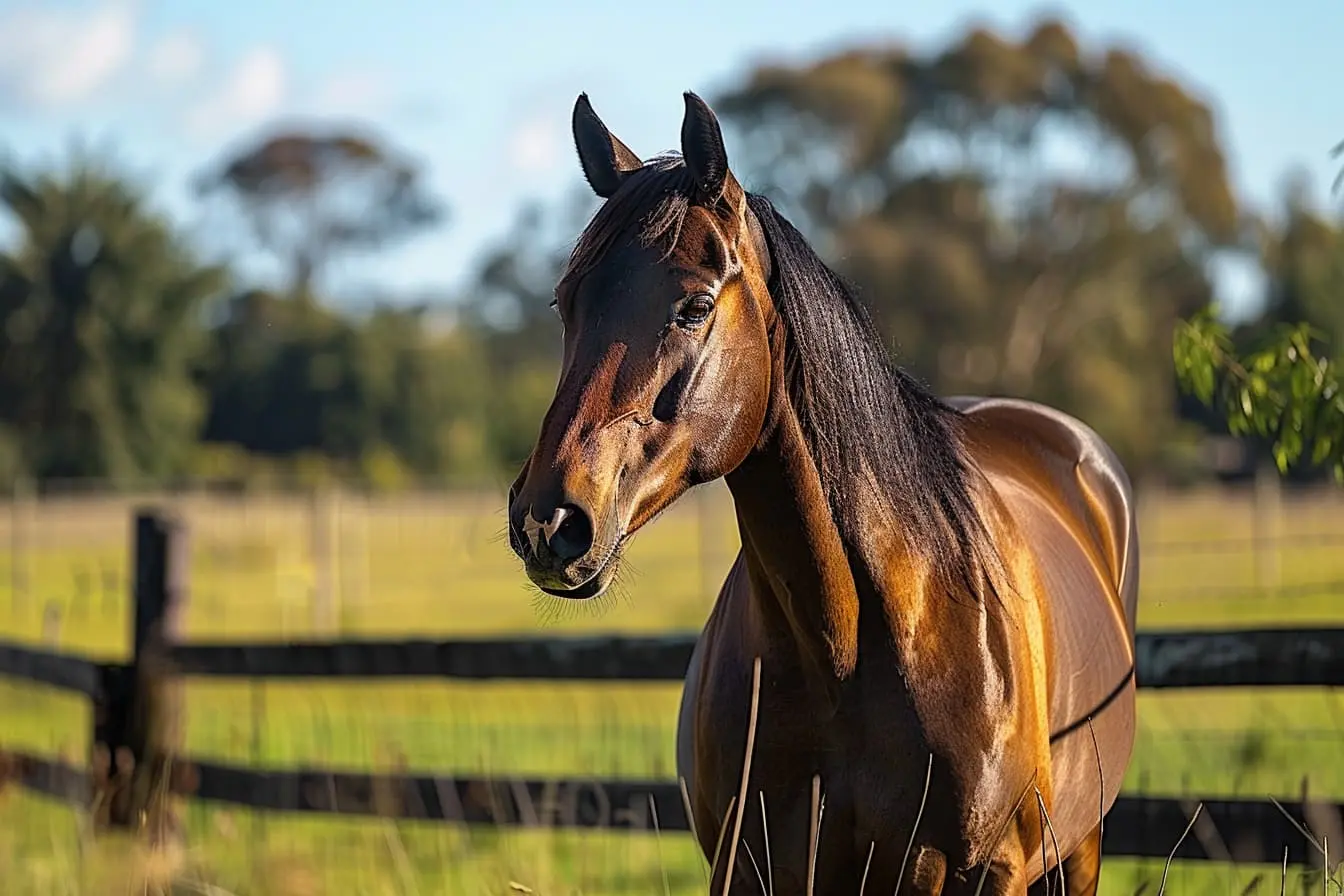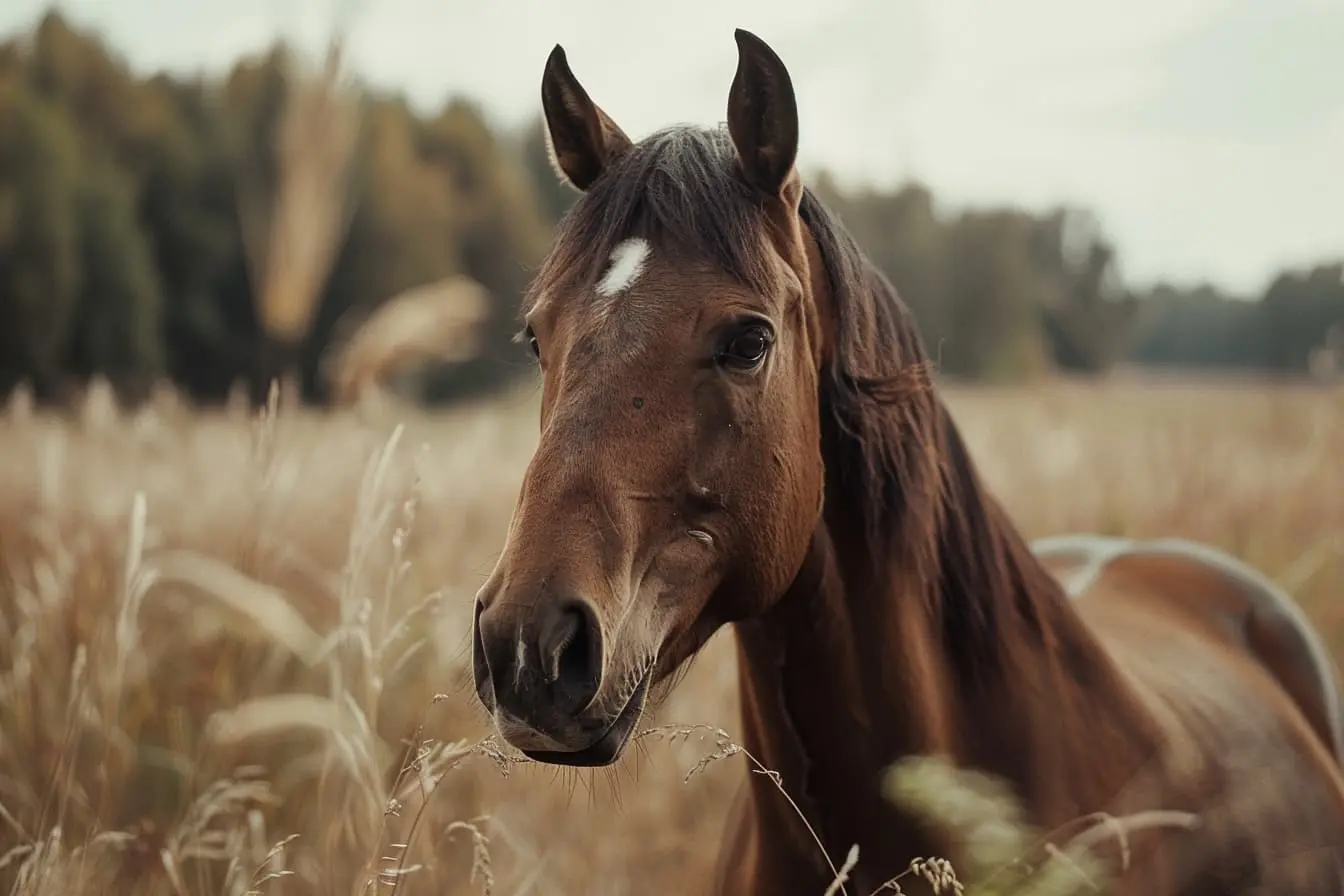
Top 25 Most Common Questions UK Vets Are Asked About Horses
Horse ownership is a rewarding yet complex endeavour, filled with questions about care, health, and behaviour. Here, we address the top 25 questions vets in the UK frequently encounter, providing you with the insights you need to ensure your horse thrives.
How often should my horse see a vet?
Annual check-ups are recommended for all horses. However, older horses or those with health issues might benefit from bi-annual visits.
What should I feed my horse?
A balanced diet for a horse typically includes quality forage like hay or grass, along with grains and supplements as needed based on their health, age, and workload.
How much exercise does my horse need?
The amount varies based on the horse's health and job, but daily exercise is beneficial for most horses, ranging from light walking to more strenuous activity.
How can I tell if my horse is overweight?
Examine the ribs; you should be able to feel them but not see them. A vet can provide guidance on assessing body condition score.
Do horses need dental care?
Yes, horses require regular dental check-ups and care to prevent issues like tooth abscesses and uneven wear.
What are signs of colic in horses?
Signs include pawing at the ground, rolling, a lack of appetite, and a lack of bowel movements. Immediate veterinary attention is crucial.
How do I prevent laminitis?
Maintain a healthy weight, avoid sudden changes in diet, and provide regular hoof care. Be cautious with lush pasture access.
What vaccinations does my horse need?
Core vaccines in the UK typically include equine influenza and tetanus. Your vet might recommend others based on risk.
How often should a horse's hooves be trimmed or shod?
Every 6 to 8 weeks, but this can vary based on the horse's activities and hoof growth.
Can horses get colds or flu?
Yes, horses can suffer from respiratory conditions like equine influenza, which is why vaccination is important.
What is equine arthritis and how is it treated?
Arthritis is joint inflammation that can cause pain and stiffness. Treatment includes medication, weight management, and sometimes surgery.
How do I check my horse for parasites?
Regular fecal exams can help identify parasites, and your vet can recommend a deworming schedule.
What is the best way to groom a horse?
Regular brushing, mane and tail care, and hoof cleaning are essential. It's also a good opportunity to check for health issues.
How long do horses live?
Horses can live into their 20s and 30s, with some ponies reaching 40 years or more.
What is founder in horses?
Founder, or laminitis, is a serious condition affecting the hooves and can lead to lameness if not treated promptly.
How can I tell if my horse is happy?
Signs of contentment include a relaxed posture, regular eating habits, and sociability with humans and other horses.
Is it safe to keep a horse alone?
Horses are herd animals and usually thrive with companionship, whether from another horse or a different species.
What should I do if my horse is bitten by a snake?
Keep the horse calm and call a vet immediately. Try to identify the snake if safely possible.
How do I protect my horse from flies?
Use fly sprays, keep the stable clean, and consider fly masks and sheets during peak fly seasons.
Can horses recognise their owners?
Yes, horses can recognise and become attached to their owners through voice, sight, and handling.
What are the signs of aging in horses?
Signs include graying hair, weight loss, dental problems, and decreased mobility.
How can I reduce the risk of my horse developing ulcers?
Provide free access to forage, minimise stress, and discuss preventive medications with your vet.
What is the best bedding for a horse stable?
Choices vary but include straw, wood shavings, and rubber mats. Consider absorbency, dust levels, and comfort.
How do I transport a horse safely?
Use a well-maintained, properly sized trailer, and ensure the horse is comfortable with loading and unloading beforehand.
What should I include in a first-aid kit for my horse?
Include items like bandages, antiseptic, wound dressing, a thermometer, and tweezers, and keep your vet's number handy.
Caring for a horse is a significant commitment that requires knowledge, patience, and love. By keeping informed on health and welfare issues, you can ensure your equine friend leads a happy, healthy life. Always consult with a veterinarian for the most personalised and up-to-date advice regarding your horse's care.
Contents
- How often should my horse see a vet?
- What should I feed my horse?
- How much exercise does my horse need?
- How can I tell if my horse is overweight?
- Do horses need dental care?
- What are signs of colic in horses?
- How do I prevent laminitis?
- What vaccinations does my horse need?
- How often should a horse's hooves be trimmed or shod?
- Can horses get colds or flu?
- What is equine arthritis and how is it treated?
- How do I check my horse for parasites?
- What is the best way to groom a horse?
- How long do horses live?
- What is founder in horses?
- How can I tell if my horse is happy?
- Is it safe to keep a horse alone?
- What should I do if my horse is bitten by a snake?
- How do I protect my horse from flies?
- Can horses recognise their owners?
- What are the signs of aging in horses?
- How can I reduce the risk of my horse developing ulcers?
- What is the best bedding for a horse stable?
- How do I transport a horse safely?
- What should I include in a first-aid kit for my horse?
Tags
Vets near you
Speciality vets
- Aquatics vet specialists
- Birds vet specialists
- Camelids vet specialists
- Cats vet specialists
- Cattle vet specialists
- Deer vet specialists
- Dogs vet specialists
- Equines vet specialists
- Exotic vet specialists
- Goats vet specialists
- Pigs vet specialists
- Poultry vet specialists
- Sheep vet specialists
- Small Mammals vet specialists
- Wild vet specialists
Vet facilities
- Accessible by public transport
- Blood testing
- Car park nearby
- Client car park
- Dentistry
- Diagnostic imaging
- Disabled public access
- Flea and worm treatments
- Microchipping
- Mobile services
- Neutering
- Open at weekends
- Out-of-hours service
- Referral interests
- Referrals only
- Street parking outside
- Toilets available
- Vaccinations



